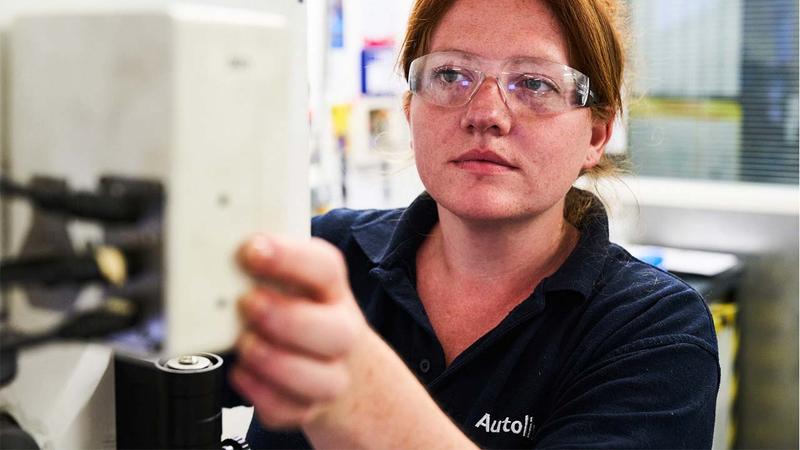
Are you considering a career in engineering but not sure where to start?
Well you’ve come to the right place!
With an average salary of £40,000, engineering can be a lucrative career path with many avenues and opportunities for advancement.
So if you want to learn more about engineering apprenticeships and get your foot in the door of an exciting industry, here are the qualifications you’ll need to get into engineering.
What does an engineer do?
An engineer is someone who designs, builds, tests, and improves complex products, machines, systems, or structures. At its core, engineering is about problem solving, using science, maths, and technology to find practical solutions to real-world challenges.
Engineers might develop new medical devices, create more efficient engines, design safer buildings, or improve how energy is generated and used. They often work in teams, applying logical thinking and creativity to turn ideas into working systems that people rely on every day.
Engineering is a broad field with many specialisms, including civil, mechanical, electrical, software, and chemical engineering, each focused on different types of innovation and improvement. Whether it's building bridges, programming robots, or designing sustainable energy solutions, engineers help shape the modern world.
Learn more: The Top Benefits of Hiring an Apprentice Engineer
What engineering roles are there?
Engineers work across industries like food, automotive, rail, water, energy, and construction. Many choose to specialise in a particular branch of engineering. Here are some of the main career paths:
-
Civil engineer: Designs and manages infrastructure projects such as roads, bridges, tunnels, and buildings.
-
Mechanical engineer: Works on machines and mechanical systems, from engines and vehicles to heating and cooling systems.
-
Electrical engineer: Focuses on electrical systems, power generation, wiring, and electronic equipment.
-
Chemical engineer: Develops processes to turn raw materials into useful products like fuels, plastics, or medicines.
-
Software engineer: Designs and builds computer programs, apps, and digital systems.
-
Aerospace engineer: Works on aircraft, spacecraft, and the systems that keep them running safely.
-
Biomedical engineer: Combines engineering and healthcare to create medical devices and technologies.
-
Environmental engineer: Develops solutions to environmental problems, such as water treatment, recycling, and pollution control.
Engineering careers also progress through different levels:
-
Operator: Entry-level roles, often hands-on in production or maintenance.
-
Engineering technician: Mid-level roles focused on applying technical skills and supporting projects.
-
Engineer / senior engineer: Lead projects, design systems, and solve complex problems.
-
Chief engineer: Senior management role, overseeing teams and strategy across large projects or organisations.
Most common engineering qualifications
If you’re looking to become an engineer, there are two main qualification routes you can take to enter the industry: Engineering Degrees or Engineering Apprenticeships. UCEN Manchester also offers Level 4 HNC qualification.
Engineering Degrees
Engineering degrees will give you a level 5 or Level 6 qualification in a chemical, civil, mechanical, general, or electronic engineering specialism. Depending on the higher education course provider, you may also undergo a temporary placement with an engineering team relevant to your specialism.
A full-time engineering degree will last roughly 3 years with an average annual tuition fee of £9,250. The average entry requirements for an engineering degree are AAB at A-Level or another Level 3 – 6 vocational qualification e.g. BTEC. According to UCAS, 76.9% of graduates go directly into employment.
Upon completing of your engineering BA Hons, you can go on to study a engineers as a masters degree,
Engineering Apprenticeships
With an engineering apprenticeship, you will spend up to 80% of your time working with a relevant employer in the engineering sector gaining first-hand work experience and making valuable connections.
Most employers recruit their apprentices as full-time staff once the apprenticeship has been completed since they have invested time and effort into developing the perfect skills for the business.
Our engineering apprenticeships are Level 3 qualifications which are often more suitable than engineering degrees for those with lower A-level grades since the entry requirements are simply passing GCSE grades.
While an engineering apprenticeship lasts at least as long as a degree (three years), you have the added benefit of earning an apprenticeship wage while you learn and no tuition fees to pay – in fact, your qualification will be funded (at least in part) by the apprenticeship levy.
I wanted to gain on-the-job experience while completing the engineering qualifications and coursework, and Total People seemed to offer this the best.
Total People Engineering Apprentice, working with Sodexo.
Learn more: The Top 9 Benefits of Engineering Apprenticeships
Frequently asked questions about becoming an engineer
Do engineers need to be good at maths?
Yes, but don’t let that put you off. Different branches of engineering use maths in different ways, mechanical engineers often use formulas for forces and motion, while software engineers focus more on logic and algorithms. A solid foundation in maths helps, but problem-solving skills are just as important.
Can you become an engineer without a degree?
Absolutely. Many engineers start their careers through apprenticeships, which combine practical work experience with classroom learning. Apprenticeships can lead to the same qualifications and career progression as a university degree.
What industries hire engineers the most?
Engineers are needed in almost every sector, but the biggest employers include construction, energy, automotive, aerospace, IT, and manufacturing. With the growth of renewable energy and new technologies, demand is only increasing.
What’s the difference between a technician and an engineer?
A technician focuses on applying practical skills, testing, and maintaining systems, while an engineer usually designs, plans, and leads projects. Both roles are valuable, and technicians often progress into full engineering roles with further training.
Is engineering a good career for the future?
Yes. Engineering is one of the UK’s shortage occupations, meaning skilled engineers are in high demand. With advances in green energy, digital technology, and infrastructure, engineers are set to play a key role in shaping the future.
How long does it take to qualify as an engineer?
It depends on the route. A university degree usually takes three years full-time, while an apprenticeship can take three to four years. Either way, you’ll continue learning and gaining new qualifications throughout your career.
Choose Total People engineering apprenticeships
Engineering is an increasingly competitive field to break into, why not give yourself the advantage of a wage, hands-on experience, and industry connections by completing an apprenticeship.
Take a look at our engineering apprenticeships to get your career started.

Our Apprenticeship Paths
Total People offer apprenticeships in a variety of different industries.
Explore

